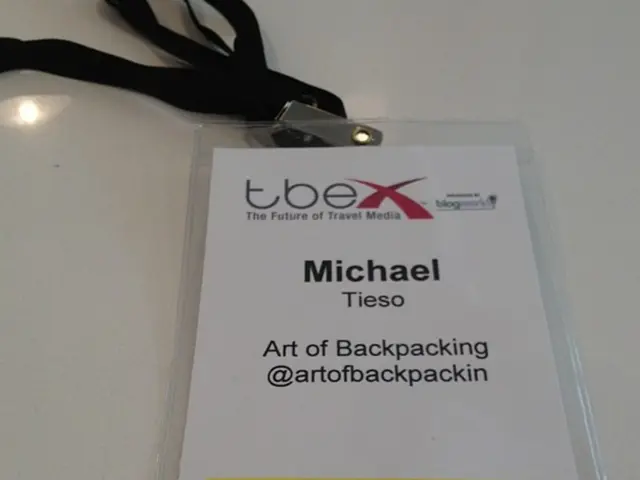Africa's border payments: An untapped realm for unlocking continental prosperity
In the dynamic realm of mobile money transactions, Africa stands as a global leader. Over 65% of the total $1.68 trillion transaction value in 2024 was recorded on the continent, underscoring its significant role in the digital financial landscape [1]. However, achieving cross-border payment interoperability in Africa remains a complex task, fraught with challenges that require collaborative solutions.
One of the main obstacles is regulatory fragmentation. With over 50 jurisdictions, each with distinct legal and compliance requirements, unified regulation and enforcement proves to be a daunting task [1][2]. Technical interoperability gaps also pose a significant challenge, as mobile money and other payment platforms are often limited to national boundaries, hindering seamless transactions even between neighbouring countries with advanced mobile ecosystems like Kenya and Uganda [1][3].
Market diversity is another hurdle, with different countries favouring different payment methods. For instance, South Africa uses card payments, Kenya embraces mobile money, and Nigeria relies on cash, making it difficult to create universally accepted solutions [1]. Additionally, inconsistent digital identity infrastructure and compliance standards lead to complex, duplicative KYC and AML processes, which hinder smooth cross-border payments [1].
Limited broadband and digital infrastructure, especially in less connected regions, further restricts access to interoperable digital payment options and pushes reliance on costly, insecure informal channels [4]. African businesses often struggle with currency mismatches, dollar shortages, and delayed settlements in cross-border B2B payments [5]. Lack of interoperability between African digital payment systems is a major barrier to scaling intra-African trade and enabling broader economic participation [6].
Addressing these challenges requires a coordinated, multi-stakeholder effort. Regional bodies such as the East African Community (EAC) and the Intergovernmental Authority on Development (IGAD) have convened workshops and established initiatives like the Eastern Africa Regional Digital Integration Project (EARDIP) to harmonise legal, regulatory, and technical frameworks, promoting faster, safer cross-border payments and enhanced financial inclusion [3].
The creation and promotion of regional payment systems, such as the Pan-African Payment and Settlement System (PAPSS), aim to reduce costs and promote intra-Africa trade, though participation remains voluntary compared to European models like SEPA [2]. Implementation of regulatory sandboxes across multiple countries provides a space for fintech innovators to test digital payment solutions in real-world, controlled environments, thus bridging the gap between innovation and regulation while informing policy reforms [2].
Enhanced compliance measures focusing on Know Your Transaction (KYT) and transaction transparency are crucial in mitigating risks such as money laundering and sanctions violations in cross-border payments, especially in cryptocurrency markets [1]. Efforts to build broadband infrastructure and digital identity systems underpin more reliable, universal digital KYC and payment identity verification, reducing friction [1][3][4].
Key stakeholders, including governments, regulators, financial institutions, and technology providers, are working together to overcome technical, regulatory, and infrastructural barriers, with the ultimate goal of creating truly interoperable and inclusive cross-border payment ecosystems in Africa [1][2][3][4].
As the African payment landscape continues to evolve, so does the potential for innovation and growth. Companies like Flutterwave, driven by expertise in financial analysis, risk management, and process optimization, are at the forefront of this transformation, driving global growth and financial inclusion [7]. Embracing new technologies such as stablecoins and blockchain infrastructure can unlock faster settlements and greater predictability [8].
Moreover, making cross-border payments seamless, affordable, and secure is a work in progress in Africa. The diaspora sending money home with lower fees and faster delivery is a potential benefit of adopting new technologies in cross-border payments [9]. Widespread access to digital identity systems is essential to building trust and securing transactions, a critical issue to solve for delivering scalable, inclusive financial solutions in Africa [10].
In the spirit of fostering innovation and collaboration, Moonshot, an event by our website, is returning to Lagos on October 15-16. Featuring Africa's top founders, creatives, and tech leaders for 2 days of keynotes, mixers, and future-forward ideas, this event promises to be a platform for shaping the future of Africa's digital payment landscape [11]. Early bird tickets are now 20% off.
References: [1] World Bank Group. (2021). The State of Digital Payments 2020: A Year of Resilience and Innovation. [2] African Development Bank. (2020). Enabling the Digital Transformation of Africa's Payment Ecosystems. [3] Eastern Africa Regional Digital Integration Project (EARDIP). (n.d.). About Us. [4] GSMA. (2020). The Mobile Economy: Sub-Saharan Africa 2020. [5] African Export-Import Bank. (2019). The Digitalisation of Trade in Africa: Challenges and Opportunities. [6] United Nations Conference on Trade and Development (UNCTAD). (2020). E-commerce and Digital Trade in Africa. [7] Flutterwave. (n.d.). About Us. [8] Flutterwave. (2021). Embracing New Technologies: Stablecoins and Blockchain Infrastructure. [9] World Bank Group. (2021). Remittances to Africa Reach Record High Amid Pandemic. [10] World Bank Group. (2021). Digital Identity: The Key to Financial Inclusion in Africa. [11] Moonshot. (n.d.). About.
- African fintech leaders, such as Flutterwave, are pushing the boundaries of innovation with expertise in financial analysis, risk management, and process optimization to drive global growth and financial inclusion.
- Embracing new technologies, like stablecoins and blockchain infrastructure, can unlock faster settlements and greater predictability in cross-border payments, potentially reducing fees and improving delivery speed for diaspora remittances in Africa.
- To overcome challenges in achieving cross-border payment interoperability, regional bodies like the East African Community (EAC) and the Intergovernmental Authority on Development (IGAD) are collaborating to harmonize legal, regulatory, and technical frameworks through initiatives like the Eastern Africa Regional Digital Integration Project (EARDIP).
- Efforts to build broadband infrastructure and digital identity systems are essential to enabling reliable, universal digital KYC and payment identity verification, which can reduce friction and lead to more scalable, inclusive financial solutions in Africa.




